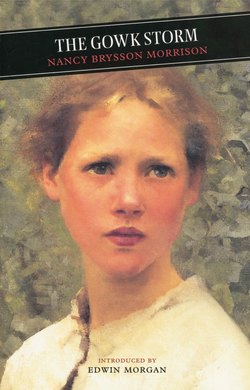Читать книгу The Gowk Storm - Nancy Brysson Morrison - Страница 6
На сайте Литреса книга снята с продажи.
Prologue
ОглавлениеI can remember the trees in the garden at home. The manse was built in a very sheltered place, for to reach it from the road one had to walk through a wood, and it was shielded from the loch’s storms by tall trees, stripped bare on one side by the wind. The garden was so full of trees they left little room for anything else. Yellow doronicums used to make a valiant show, and in autumn, amongst skeleton grey leaves, we found veined crocuses. Everything grew a little wildly in that muffled, breathless place. All the trees’ strength went into their straggling height and each one seemed to be stretching upwards in an attempt to see over its neighbour’s untidy head.
Most of the furniture was too large for the irregular rooms. It had come from mamma’s home, and although some of it was good it had all seen better days, so that the manse was shabbily resplendent. The ponderous grandfather clock made the hall look uncomfortably small and on a quiet afternoon its ticking could be heard in every room of the house. Once, when grandmamma died, it stopped, and after it was mended by papa it always struck the hour at the twenty to. We grew so accustomed to it that other people’s clocks seemed wrong.
Nannie also came from mamma’s home where she had been nurse to her and her eight brothers and sisters in the days when the nineteenth century had been as youthful as they. She had shown a marked preference for the boys, to whom she used to give the white crusts of bread while she made the girls eat the black. But she was a Graham and let no man have his way. When any of the brothers had the mooligrubs or sullens, she would tell him she would whip him—ay, even if he were the Duke of Buccleuch.
She had comforted them in grief and watched over them in sickness, had rubbed butter on their bruises, seen that the adventuresome boys did not walk too soon, and sung to George and Frederick, long-since-dead Uncle Oscar and her favourite Octavius, when they were small enough to sit on her lap:
Here’s a braw wee rascal
Straddling on ma knee,
Clutching hand and kicking foot,
Shouting loud wi’ glee.
Are ye ready for the hunting-field?
And ready for the Race?
Ready for dirk, dagg and shield?
For honour or disgrace?
Ah, ma braw wee braggart,
Bide ye by me still—
Time enow for your ain gait
And your ain headlong will!
Papa, whose church was small and Highland congregation poor, could not afford a nurse, so that Nannie had to be maid, cook, nurse, rolled into one. She could not show favouritism between us for we were all girls, which I believe was a great disappointment to her. I could not tell which she loved the best. I think she was proudest of Julia, and she loved Emily because she needed the most care, and me because I was the youngest.
She was very wise and very strict; bread and butter, even on birthdays, always had to come first, and at tea-time we had to leave something over on the table for Lord Manners. Her voice was soft and had a Highland up-and-down intonation. When she wanted to say it was a stormy night, she used the word gurlie; when she meant some one was garrulous, she said wanwordy. When an apple was bad, it was wersh, and I was not the youngest but the shakings-of-the-pot.
We never grew older in her eyes. When Julia used to return, I think the sight of her was confused for Nannie by the memory of a little girl playing thoughtfully by herself at the fire; and when Emmy was quite grown up, Nannie always used to treat her as though she were a child too fond of her own will.
Her ay was ay, and her nay, nay. I used to weep sometimes when she would not give me what I wanted, and say that perhaps I would die soon and then mebbe she would be sorry. It was only the very good and the very old who died, Nannie, unmoved, would tell me.
